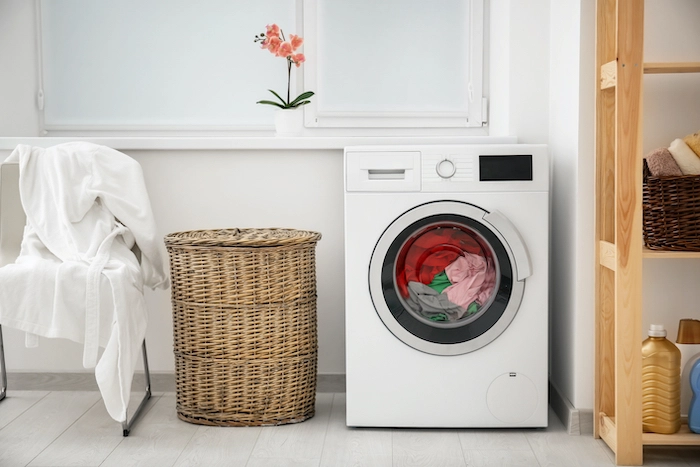How much do Washing Machines cost to run - A Money Saving Guide

How much do Washing Machines cost to run - A Money Saving Guide
In today’s day and age saving money is at the forefront of everyone's mind and saving a pretty penny where ever you can is vital in today's economic climate. With the rise in energy prices seeming to increase every month and the forever endless cycles of washing you run through each week, we have compiled a guide on helping you save your hard earned dosh.
Why are energy ratings so important?
When it comes to washing machines or any domestic appliance it is very important you know the basics of the UK energy rating system. When the washing basket seems bottomless and a never-ending chore you can run through a hefty number of washing machine cycles each month and if saving money is at the front of your mind when buying your washing machine or laundry appliance then it is important you understand the EPC scale because it is proven that an energy efficient device can save you hundreds of pounds each year, especially when you're going through multiple cycles of washes per week! With energy prices spiking 54% since last October 2021, you would be foolish not to ensure you are buying the most energy-efficient laundry appliance.
The UK energy rating system uses the EPC scale which is ranked A to G. A is rated the most energy-efficient device and G is the worst energy efficient device. As a rule of thumb, it is really important you are choosing an appliance that is at least at the EPC rating of B or higher if you want your Washing Machine to be saving you as much money as possible in the long term because a low energy rated device will end up costing a lot more in the long run.
How much does a Washing Machine cost to run?
On average an A grade Washing Machine (9kg) costs 10p per cycle when using an average washing cycle consuming 49 kWh per cycle. Say the average Washing Machine owner runs 270 cycles per year this costs them on average £27 per year. Put this in comparison to a D grade Washing Machine (9kg) that costs on average 15p per cycle when using an average washing cycle consuming 79 kWh per cycle. This would cost them on average £40.50 per year. Now a £13 difference may not sound that great within a year but when you put it into the perspective that the average Washing Machines life span is around 15 years, a grade D appliance would cost you an extra £202 than a grade A appliance and with the ever-increasing rate of energy costs in the UK, this gap is only going to increase.
How else can I maximise the efficiency of my Washing Machine?
So you are now a pro on the EPC scale and have opted for one of the many A grade appliances we sell. Now you want to know, what else you can do to maximise the energy consumption efficiency of your Washing Machine. Well, luckily there is another couple of nifty, little trick that can save you even more money.
Firstly, you can drop the temperature of your Washing Machine from 40 degrees to 20 degrees which helps you reduce 62% of your appliance energy consumption. Furthermore, if your device has an Eco mode this can help further reduce energy consumption because up to 90% of a Washing Machine’s energy consumption is used when heating the water to wash. In addition to this, ensure you are filling up your washing machine with all the necessary dirty clothes as an easy way to reduce costs is to use fewer cycles!
What Are The Most Energy Efficient Washing Machines?
As previously established, the most energy-efficient Washing machine devices in the UK hold an EPC grade A. So, instead of searching far and wide, I have compiled a list of the most cost-effective, energy-saving washing machines to grace the planet!! All jokes aside, these are really good and will save you a huge sum of money in the long run.
Hotpoint NSWM 963C BS UK (Grade A)
Bosch WAT2840SGB (Grade A)
Bosch WAU24T64GB (Grade A)
Conclusion
Ultimately there are various means of ensuring that your washing machine is running at its most efficient and cost-effective in terms of saving you money when your next energy bill comes around and I hope that you have learnt some valuable tips and tricks on how to save money on your washing machine and laundry appliances.



